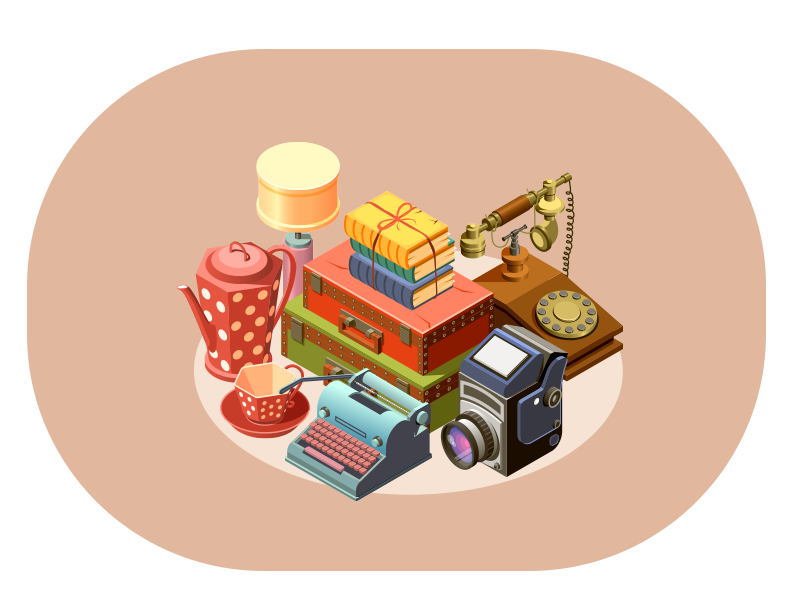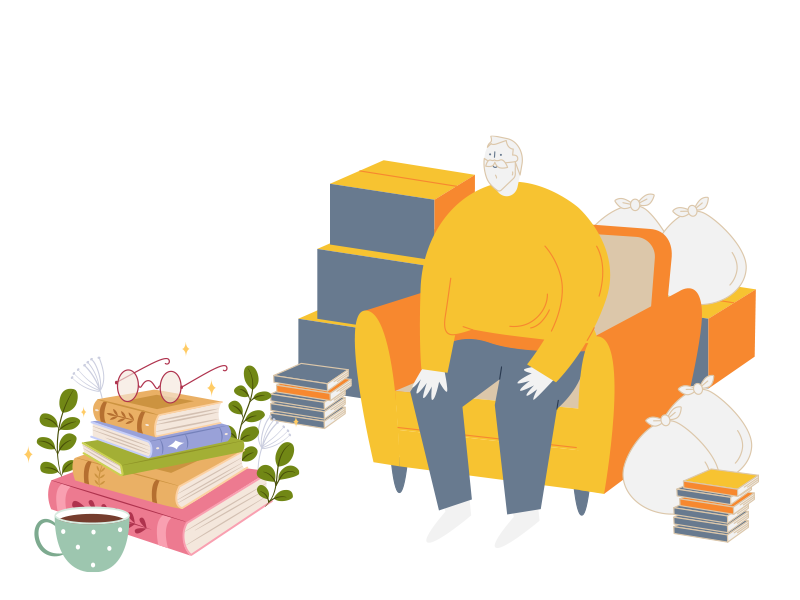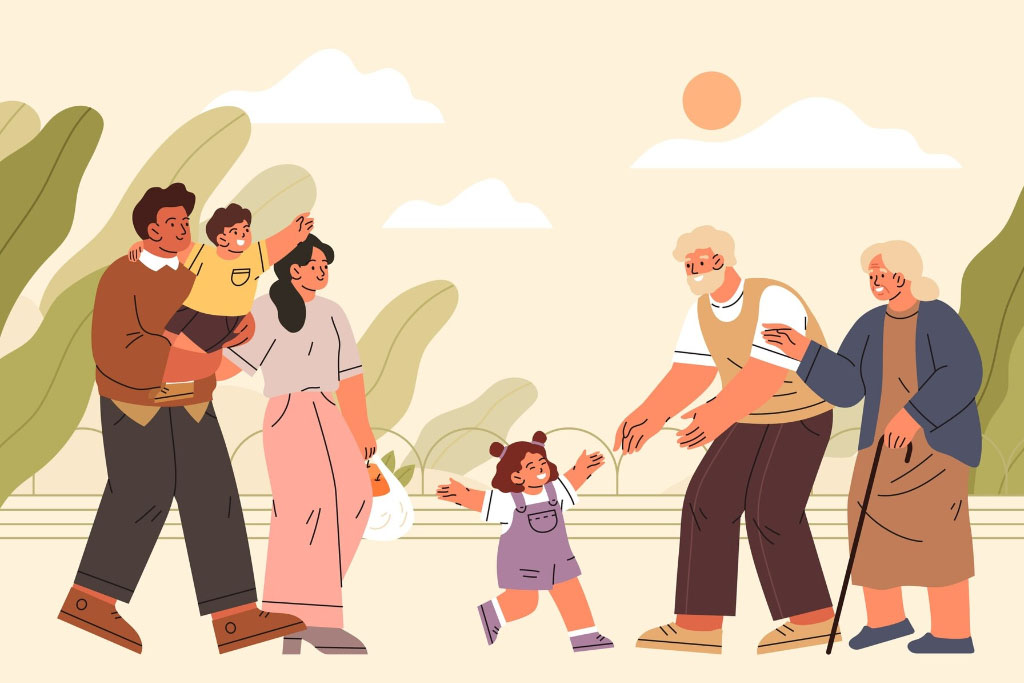Are There Differences Between Hoarding Disorder and Hoarding OCD?

Have you ever entered someone’s home and noticed that they seem to have a lot of stuff lying around, particularly stuff that you might consider to be worthless trash? If you have had this experience, there is a good chance you have encountered a hoarder.
What is a hoarder?
A hoarder is a person who would likely be diagnosed with hoarding disorder by a mental health professional. By definition (per the Mayo Clinic), hoarding disorder is:
“an ongoing difficulty throwing away or parting with possessions because you believe that you need to save them.”
While that definition might seem to point to an issue that seems harmless, hoarding is anything but harmless. In fact, hoarding disorder has the potential to completely destroy the lives of the victims and the people around them.
What Types of Items Do Hoarders Generally Like to Hoard?

Of course, one person’s trash may be another person’s treasure. In the world of hoarding, almost anything could be the target of a hoarder. With that said, there are some things that seem to be more popular with hoarders than others. Here is a small list of items to which hoarders get attached:
- Old appliances
- Newspapers and magazines
- Can goods for fear of running out of food
- Condiment (ketchup and mustard) packets
- Clothing items
- Hangers
- Animals or pets (note the neighborhood cat person)
Destructive Signs of Hoarding Disorder
Stating that hoarding disorder destroys lives is a bold statement. However, one only needs to look at the destructive signs of hoarding disorder to understand how truly difficult this disorder can be on the people associated with it. The signs of hoarding disorder include:
- Difficulty discarding items with seemingly no value
- Overwhelming one’s house space to keep accumulating stuff
- Difficulty many simple decisions about anything
- Planning and organizational difficulties
- Creation of unsanitary conditions due to accumulating stuff – causing health hazards and inviting pests
- Relationship difficulties when confronted with hoarding activities
- Assigning value to things like trash that really have no value
Is Hoarding OCD?

A big part of understanding any kind of disorder involves putting it in the right category of psychological disorders. Doing that helps direct psychologists and therapists to employ the right treatment options.
In the case of hoarding disorder, there was always this assumption that Obsessive Compulsive Disorder or OCD and hoarding disorder were one and the same. In fact, there was a time not so long ago when hoarding disorder was classified as OCD by the American Medical Association and the psychiatric community. However, any diagnosis can evolve over time.
More recently, it was determined that hoarding disorder should not be classified as OCD hoarding, deserving of its own classification. It looks like that reclassification took place in 2013 when the Diagnostic and Statistical Manual of Mental Disorders (DSM-5) released an updated publication on mental health disorders.
When contemplating hoarding OCD, it’s important to consider the differences that might point out that OCD hoarding is not an accurate diagnosis. What seems to differentiate these diagnoses is that OCD behaviors are usually driven by anxiety, obsessive thoughts, and depression. In other words, people with OCD almost always have at least one other significant mental health issue.
Hoarding disorder is usually driven by the individual’s sincere belief that the things they are accumulating have real value now and into the future. The only time they seem to experience anxiety is when they are asked to dispose of the items they have been collecting.
To be fair, there are still mental health professionals who will treat hoarding as OCD in the most severe cases. This is usually done when the hoarding causes or seems to have been caused by other mental disorders. In such cases, the actual diagnosis might be OCD/hoarding.
Why Treating OCD is Easier Than Treating Hoarding Disorder
When someone has an OCD diagnosis, they usually have an acute awareness that something is not right. They might actually be bothered by the fact they have to wash their hands 100 times each day or whatever their OCD problem might be. In treatment, it’s not difficult to point out the issue they are having and to start giving them the treatment they need. The fact they understand they have a legitimate disorder tends to motivate them to cooperate more during treatment.
All of this is very different for people with hoarding disorder. Why? They often fail to see that their hoarding behavior is a problem. They don’t see a problem with saving stuff that they sincerely believe has value now and will have even more value in the future. When people are unwilling to admit they have a problem, they usually are more reluctant to seek treatment. Even when they seek treatment at the request of others, they won’t fully commit to the process.
The Risk Factors Associated With Hoarding Disorder
As stated above, most hoarders are not necessarily dealing with other significant mental health issues. That raises the question, “What exactly are the risk factors that could drive a hoarding disorder?”
There are three primary risk factors that could serve as predictors of hoarding disorder.
- Stressful events or trauma – People tend to become overly protective of themselves after experiencing traumatic life events. Traumatic life events might include involvement in a natural disaster, experiencing homelessness, losing a loved one through death or divorce, or losing personal possessions in a fire.
- Personality traits – People who are disorganized or have difficulties planning and managing their lives are prone to hoarding disorder.
- Family history of hoarding – If someone is raised in a hoarding environment, they are more likely to adopt hoarding behaviors than people not raised around hoarders.
Problems That Hoarding Disorder Causes

Hoarding disorder will absolutely complicate the lives of victims. Without getting the treatment they need, it will hurt them in parts of their lives. The life complications that can be caused by hoarding disorder include
- Parts of the home become a fire hazard
- Creates stress in the individual’s life
- Causes friction in personal relationships
- Creates the possibility of bodily injury from tripping or falling items
- Creates health hazards and invites pests
- Decreases productivity at school or work
- Could result in legal issues like eviction or divorce
- Leaves the individual isolated and feeling lonely
Treating Hoarding Disorder
Since hoarding is a behavioral problem, the best treatment options are those that modify behaviors. Two of the better therapeutic options for hoarders are Cognitive Behavioral Therapy (CBT) and Dialectical Behavioral Therapy (DBT).
CBT involves delving into the patient’s mind to find out exactly what negative thoughts are driving them to hoard. Once the specific negative thoughts have been identified, it then becomes possible to teach the patient how to recognize their negative thoughts and convert them into positive thoughts. When the negative thoughts can be set aside, the desire to hoard seems to diminish.
DBT is similar to CBT with one major difference. Instead of focusing on how negative thoughts drive the behavior, the focus falls on how negative feelings are driving the behavior. If the negative feelings can be converted to positive feelings, again, the need to hoard should decrease.
If OCD hoarding ends up being the right diagnosis, the patient is likely dealing with co-occurring disorders. That would be the combination of the hoarding disorder and some kind of mental health issue that is helping drive the hoarding behavior. In such cases, both disorders need to be treated at the exact same time. That helps prevent an untreated disorder from unraveling any progress made related to the treated disorder.
Clutter Trucker to the Rescue
After getting the help you need with your hoarding disorder, it will be time to clean up the remnants of your hoarding behavior. That’s where Clutter Trucker can really help you. You see, we have seen the effects of hoarding, and we are sympathetic to folks who have had to endure such a disorder.
You can hire us to come in and remove all of the stuff you have been hoarding over the years. After completing that task, there is a good chance you will need our help getting your home cleaned and better organized. We have your back in those regards. It’s our belief that once you have gotten treatment and cleaned your home, you are going to start feeling much better about life.
When you need us, give us a call.
Our prices are reasonable and our work is guaranteed.

About Jennifer Hanzlick
Clutter Trucker is a Denver-based hoarding clean-out company founded by Jennifer Hanzlick. Jennifer leveraged 15 years of corporate experience in to start the company in 2008. Her mission is to help and educate individuals and their loved ones who have hoarding disorder. A featured speaker at Ted X Boulder, Jennifer works directly with community and non-profit organizations to boost public awareness about the condition. To that end, she founded the Colorado Hoarding Task Force in 2015.
 720-982-7856
720-982-7856



